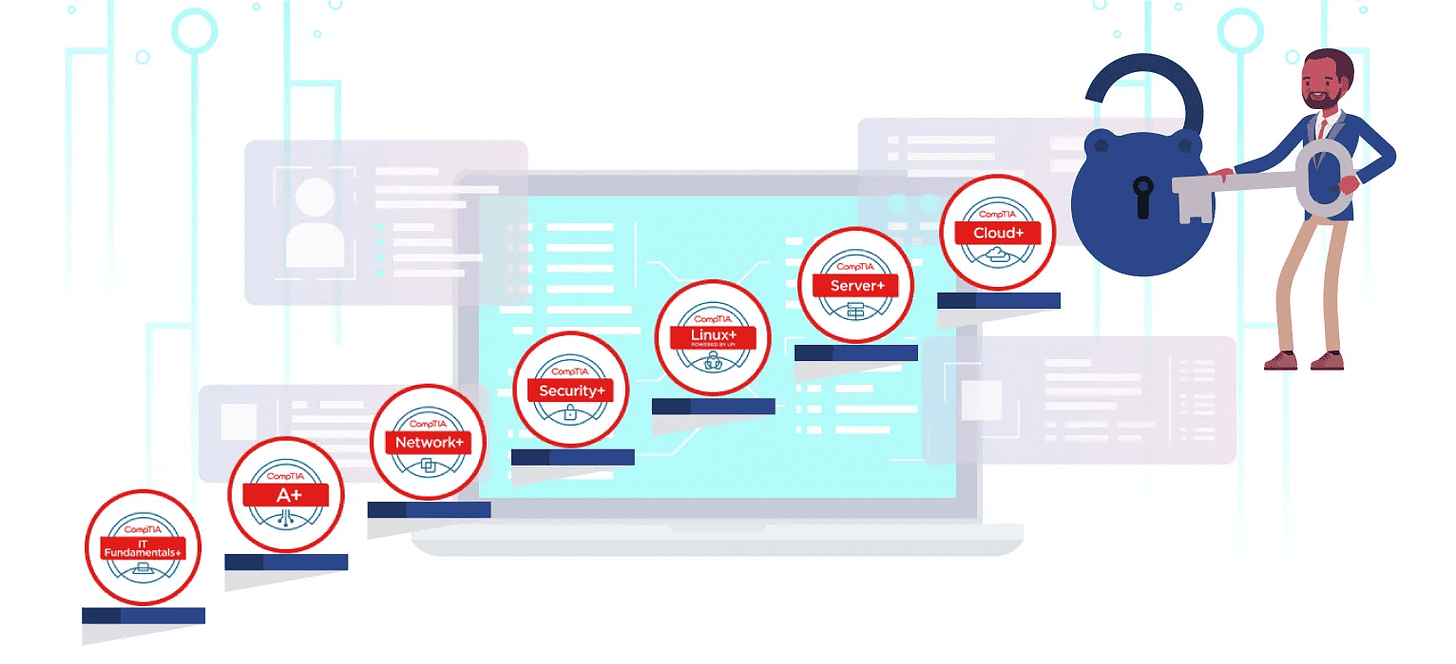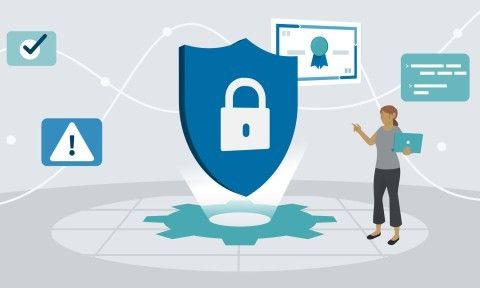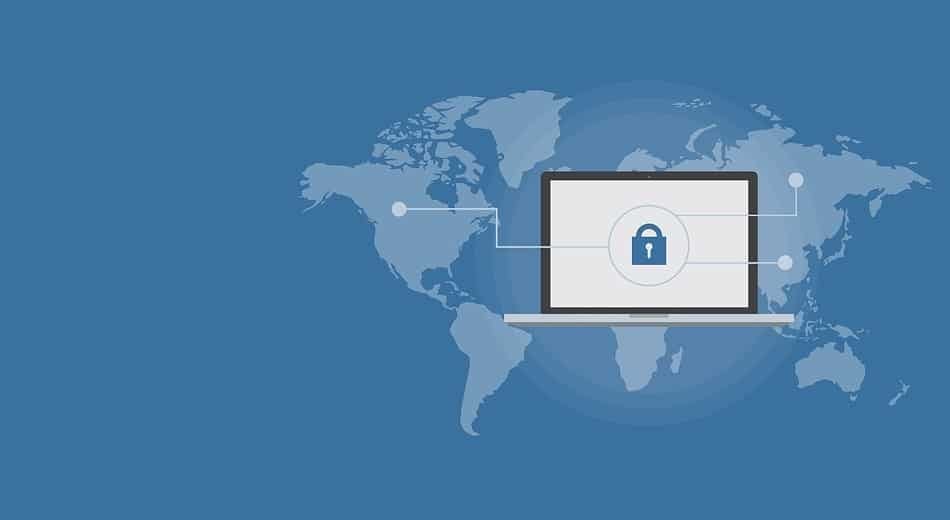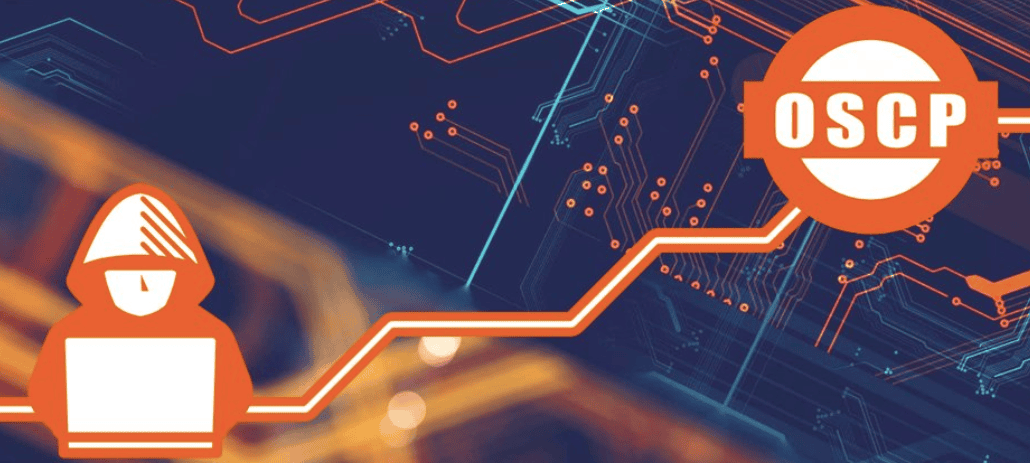Unveiling The World Of Cybersecurity: A Rewarding Career Path With Options For Everyone
Explore the thrilling world of cybersecurity! High demand, intellectual challenges, and a chance to make a difference await. Discover your niche & launch a rewarding career.
Defending the Digital Frontier: Your Career Path in Cybersecurity
Although the digital era has yielded remarkable progress, it has also created opportunities for those who aim to take advantage of weaknesses.
The protectors of our digital environment are cybersecurity specialists, who are always on the lookout for and defending networks, data, and information systems against assaults.
This dynamic industry provides an exciting and fulfilling professional path. If you want to protect the digital environment, this post will provide you with the information you need to start your cybersecurity adventure.
To assist you in navigating this fascinating area, we'll go into the necessary qualifications, look at a strategic learning plan, and present useful resources.
Why Cybersecurity?
Cybersecurity is no longer a niche field; it's an essential part of every organization's operations. As our dependence on technology grows, so does the potential for cyberattacks. Data breaches, ransomware attacks, and identity theft are just a few of the threats that cybersecurity professionals work to mitigate.
A career in cybersecurity offers:
High Demand and Job Security: According to the US Bureau of Labor Statistics, employment in cybersecurity is expected to expand at a rate of 33% between 2020 and 2030, which is significantly faster than the average for all occupations. Competitive pay and outstanding job security are a result of this strong demand.
Intellectual Challenge: The world of cybersecurity is always changing, so you have to keep up with the newest developments in both technology and threats. The work is challenging academically and calls for analytical, problem-solving, and critical thinking abilities.
Making a Difference: Cybersecurity experts are essential to preserving our important infrastructure, financial systems, and personal data by securing data and systems.
Building Your Cybersecurity Skillset
A successful career in cybersecurity requires a strong foundation in technology and security concepts. Here's where to begin
Education: A bachelor's degree in cybersecurity, information technology, or computer science can be a good starting point, though it's not necessarily required. Additionally, a lot of universities provide cybersecurity boot camps and credentials.
Fundamental IT Skills: Gain a solid grasp of operating systems, system administration, and networking principles. It also helps to be familiar with scripting languages like Bash and programming languages like Python.
Security Fundamentals: Acquire knowledge of fundamental security ideas such as intrusion detection systems, firewalls, access control, and cryptography. Any cybersecurity position starts with these ideas.
The Essential Cybersecurity Certifications
Certifications validate your knowledge and skills to potential employers. Here are some of the most recognized certifications in cybersecurity:
CompTIA Security+: This entry-level certification validates your understanding of core security concepts and technologies. It's a stepping stone for many cybersecurity careers.
(ISC)² Certified Information Systems Security Professional (CISSP): This vendor-neutral certification is considered the gold standard in cybersecurity and demonstrates a broad understanding of information security principles.
Certified Ethical Hacker (CEH): This certification focuses on offensive security techniques, such as penetration testing and vulnerability assessment. It's ideal for those interested in hacking ethically to identify and exploit security weaknesses before attackers do.
GIAC Security Essentials (GSEC): This comprehensive certification covers a wide range of security topics, including network security, incident response, and security administration.
Offensive Security Certified Professional (OSCP): This hands-on certification validates your practical penetration testing skills and ability to ethically exploit vulnerabilities in simulated environments. It's highly sought-after by employers seeking skilled penetration testers.
Choosing Your Cybersecurity Path
The beauty of cybersecurity is its diversity. There are numerous specializations you can pursue based on your interests and skills. Here are some popular options:
Security Analyst: Security analysts identify, analyze, and respond to security threats and incidents. They monitor security logs, investigate suspicious activity, and work to prevent future attacks.
Penetration Tester: Penetration testers, also known as ethical hackers, use their hacking skills to identify vulnerabilities in an organization's systems before malicious actors can exploit them.
Security Architect: Security architects design and implement security solutions to protect an organization's data and systems. They have a deep understanding of security best practices and emerging technologies.
Incident Responder: Incident responders are the first responders in a cyberattack. They work to contain the damage, identify the attackers, and restore affected systems.
Cybersecurity Engineer: Cybersecurity engineers implement, configure, and maintain security tools and technologies. They also assist with security incident response and vulnerability management.
Building Your Learning Pathway
Now that you understand the core skills, certifications, and potential career paths, let's delve into a structured learning pathway to propel your cybersecurity journey:
Phase 1: Foundational Knowledge (Months 1-3)
Strengthen your IT abilities: Invest time in studying the principles of networking, operating systems (Windows, Linux), and system administration if you don't have a history in IT. Books like Mike Meyers' "CompTIA Network+ Certification All-in-One Exam Guide" or Professor Messer's Network+ and Security+ video courses are great places to start.
Gain an understanding of essential security concepts: Investigate ideas such as intrusion detection systems (IDS), firewalls, cryptography, and access control. You can acquire this knowledge by reading books like "Introduction to Computer Security" by Matt Bishop or enrolling in free online courses on sites like edX and Coursera.
Consider an entry-level certification: Right now, CompTIA Security+ is a fantastic option. It certifies that you comprehend fundamental security concepts and gets you ready for tasks that require higher complexity. Obtaining this certification might improve your resume and show that you are dedicated to the industry.
Phase 2: Specialization and Skill Development (Months 4-12)
Select a specialization: Expand on your knowledge in a particular field based on your interests and professional goals. Security analyst, penetration tester, security architect, incident responder, and cybersecurity engineer are among the often chosen professions. Examine each specialty to determine the particular knowledge and abilities needed.
Invest in specialist training: A wide range of bootcamps and courses, both in-person and online, are available for particular cybersecurity specializations. Comprehensive training programs are available on platforms such as Cybrary, SANS Institute, and Offensive Security. Select a course of study that fits your selected area of expertise.
Seek applicable certifications: Certifications such as GIAC Security Essentials (GSEC) for a more comprehensive security foundation or Certified Ethical Hacker (CEH) for penetration testing can greatly strengthen your résumé and skills, depending on your chosen path.
Phase 3: Continuous Learning and Experience (Ongoing)
Stay updated on the latest threats: The world of cybersecurity is always changing. To stay up to date on new threats and vulnerabilities, follow security blogs, go to industry conferences, and engage in online communities.
Work on your abilities: In the field of cybersecurity, practical experience is priceless. Create a home lab where you can test out different security technologies and methods. To put your talents to the test in a secure setting, think about taking part in online capture-the-flag (CTF) competitions or bug bounty programs.
Go for more advanced certificates: As you get experience, think about going for more advanced certifications like the CISSP, which is highly sought-after in the field and shows a thorough understanding of information security principles.
Deep Dives: Specialized Cybersecurity Paths
The world of cybersecurity is vast, offering a variety of specialized paths to cater to your interests. Here's a closer look at some popular specializations:
1. Network Security:
Focus: Protecting computer networks and devices from unauthorized access, data breaches, and malicious attacks.
Skills: Network security protocols (firewalls, intrusion detection/prevention systems), network segmentation, vulnerability scanning, network traffic analysis.
Certifications: CompTIA Security+, CISSP, CCNA Security, Certified Ethical Hacker (CEH)
Example Career Path: Network Security Engineer, Security Analyst, Network Administrator (Security Focus)
2. Cloud Security:
Focus: Securing data and applications stored in the cloud environment.
Skills: Cloud security principles (shared responsibility model, encryption), cloud platform security (AWS Security, Azure Security, GCP Security), cloud access control, cloud incident response.
Certifications: CompTIA Cloud+, AWS Certified Security - Specialty, Microsoft Azure Security Engineer Associate, Google Cloud Certified Professional Cloud Security Architect
Example Career Path: Cloud Security Architect, Cloud Security Engineer, Cloud Security Analyst
3. Security Operations Center (SOC) Analyst:
Focus: Monitoring and analyzing security events to detect and respond to cyberattacks in real-time.
Skills: Security information and event management (SIEM) tools, incident response procedures, threat intelligence analysis, log analysis, security tools and technologies.
Certifications: CompTIA Security+, GIAC Security Essentials (GSEC), SANS Security Essentials Netwatcher (SEC503)
Example Career Path: Security Operations Center Analyst, Security Analyst, Incident Responder
4. Vulnerability Assessment and Penetration Testing (VAPT):
Focus: Identifying vulnerabilities in systems and networks through penetration testing, a simulated cyberattack.
Skills: Penetration testing methodologies (OSCP methodology), web application security testing, network security testing, vulnerability scanning and exploitation.
Certifications: Offensive Security Certified Professional (OSCP), Certified Ethical Hacker (CEH), GIAC Security Essentials (GSEC)
Example Career Path: Penetration Tester, Vulnerability Analyst, Security Engineer (Penetration Testing Focus)
5. Digital Forensics and Incident Response (DFIR):
Focus: Investigating cyberattacks, collecting digital evidence, and providing forensic analysis to support legal proceedings.
Skills: Digital forensics techniques (evidence collection, analysis, chain of custody), incident response procedures, computer forensics tools, legal aspects of digital forensics.
Certifications: GIAC Computer Forensic Analyst (GCFA), SANS Computer Forensics Investigator (GCFE), EnCase Certified Forensic Examiner (EnCE)
Example Career Path: Digital Forensics Analyst, Incident Responder, Computer Forensics Investigator
Beyond Technical Skills: The Soft Side of Cybersecurity
While technical skills are crucial in cybersecurity, don't underestimate the importance of soft skills. Here are some essential soft skills for success in this field:
Communication: It's critical to be able to explain intricate technical ideas to audiences that are neither technical nor non-technical.
Critical Thinking and Problem-Solving: To protect against constantly changing threats, cybersecurity professionals must possess the ability to assess issues, think critically, and come up with solutions.
Teamwork: Cooperation throughout various organizational departments is necessary for cybersecurity. The capacity to collaborate well with others is crucial.
Adaptability: The world of cybersecurity is ever-evolving. A key to staying ahead of the curve is being flexible and open to learning new abilities.
Attention to Detail: To find weaknesses and stop assaults, cybersecurity specialists must be thorough and pay great attention to detail.
The Evolving Landscape: Emerging Trends in Cybersecurity
The field of cybersecurity is constantly evolving. Here are some emerging trends to keep on your radar:
Artificial Intelligence (AI) and Machine Learning (ML): These technologies are being used for both offensive and defensive purposes in cybersecurity. AI-powered tools can help identify threats and automate security tasks, while attackers are also using AI to develop more sophisticated attacks.
Security of the Internet of Things (IoT): As more devices get connected, more security issues arise. IoT device security is becoming more and more crucial.
Cloud Security Issues: With more and more businesses turning to the cloud, it's imperative to secure cloud settings.
Social engineering attacks: These are still a serious risk. It's critical to become knowledgeable about social engineering techniques.
Zero-Trust Security: This security model necessitates constant verification since it considers that no human or device is intrinsically trustworthy.
Ethical Hacking: Unveiling the Offensive Side of Cybersecurity
While most cybersecurity professionals focus on defense, a growing and specialized field delves into the attacker's mindset: ethical hacking.
Ethical hackers, also known as penetration testers, are cybersecurity professionals who are authorized to simulate cyberattacks on an organization's systems to identify vulnerabilities and improve its security posture.
Why Ethical Hacking?
Traditional security measures like firewalls and antivirus software are essential, but they're not foolproof. Ethical hacking provides a proactive approach to security by uncovering weaknesses before attackers can exploit them. Here are some key benefits of ethical hacking:
Proactive Vulnerability Identification: Before malevolent actors can find and take advantage of vulnerabilities, ethical hacking assists in identifying them in systems, networks, and applications.
Better Security Posture: Organizations may improve their defenses and focus remediation efforts by knowing how attackers might target their systems.
Compliance Requirements: In order to maintain the security of their systems and data, several rules mandate that enterprises perform frequent penetration tests.
The Ethical Hacking Process:
Ethical hacking follows a structured methodology, often based on the Penetration Testing Execution Standard (PTES). Here's a simplified breakdown of the process:
Planning and Scoping: Defining the scope of the engagement, outlining the authorized activities, and ensuring proper communication with stakeholders.
Reconnaissance: Gathering information about the target systems and network infrastructure through publicly available sources and non-intrusive techniques.
Enumeration: Identifying specific systems, services, and vulnerabilities within the target network.
Exploitation: Attempting to exploit identified vulnerabilities using various hacking tools and techniques.
Post-Exploitation: Maintaining access to the system, escalating privileges, and simulating further actions an attacker might take.
Reporting: Documenting the findings, outlining the identified vulnerabilities, and recommending remediation steps.
The Tools of the Trade:
Ethical hackers utilize a wide range of tools to simulate cyberattacks. Here are some common examples:
Vulnerability Scanners: Automated tools that identify known vulnerabilities in systems and applications.
Password Cracking Tools: Tools used to crack weak passwords and gain access to unauthorized systems.
Exploit Kits: Collections of pre-written code that exploit specific vulnerabilities in software or operating systems.
Web Application Security Scanners: Tools designed to identify security weaknesses in web applications.
Packet Sniffers: Tools used to capture network traffic and analyze data packets flowing across the network.
Ethical Hacking vs. Malicious Hacking:
The crucial distinction between ethical hacking and malicious hacking lies in authorization and intent. Ethical hackers have explicit permission to conduct their activities and aim to identify and remediate vulnerabilities. Malicious hackers operate without authorization and seek to exploit vulnerabilities for personal gain or malicious purposes.
A Career Path in Ethical Hacking
If you enjoy a challenge and thrive in a dynamic environment, a career in ethical hacking could be a great fit. Here are some steps to get started:
Build a Strong Foundation: Develop a solid understanding of computer networks, operating systems, and core cybersecurity concepts.
Learn Ethical Hacking Methodologies: Familiarize yourself with penetration testing methodologies like PTES and OSCP.
Earn Certifications: Certifications like Certified Ethical Hacker (CEH) or Offensive Security Certified Professional (OSCP) validate your ethical hacking skills and knowledge.
Niche Areas in Cybersecurity: Unconventional Paths
The world of cybersecurity extends far beyond firewalls and network security. Here are some unconventional yet exciting niche areas to explore:
1. Digital Forensics and Incident Response (DFIR):
Uncovering the Puzzle: DFIR specialists look into cyberattacks, gather and examine digital evidence, and assist businesses in recovering from security incidents—just like detectives in the digital realm. They can handle complicated investigations and offer forensic analysis for court cases because they have a combination of technical proficiency and legal understanding.
Who you might work with: Law enforcement agencies, legal teams, IT security professionals.
Skills you'll need: Digital forensics techniques (evidence collection, analysis), incident response procedures, computer forensics tools, legal aspects of digital forensics.
Certifications: GIAC Computer Forensic Analyst (GCFA), SANS Computer Forensics Investigator (GCFE), EnCase Certified Forensic Examiner (EnCE).
2. Cyber Threat Intelligence (CTI):
Knowledge is Power: To detect possible threats, forecast attacker behavior, and proactively thwart cyberattacks, CTI analysts collect and evaluate threat intelligence from a variety of sources. They serve as a security team's intelligence branch, offering perceptions that help with security judgments.
Who you might work with: Security analysts, security engineers, incident responders.
Skills you'll need: Threat intelligence gathering techniques, data analysis skills, knowledge of current threat landscape, ability to translate complex information into actionable insights.
Certifications: Certified Threat Intelligence Analyst (CTIA), CompTIA Cybersecurity Analyst (CSA+).
3. Operational Technology (OT) Security:
Securing the Industrial Age: OT security focuses on protecting industrial control systems (ICS) used in critical infrastructure like power grids, manufacturing plants, and transportation systems. OT security professionals understand the unique challenges of securing these systems and implement strategies to safeguard essential infrastructure from cyberattacks.
Who you might work with: Engineers, plant operators, SCADA (Supervisory Control and Data Acquisition) system administrators.
Skills you'll need: Understanding of OT systems and protocols (SCADA, Modbus), familiarity with ICS vulnerabilities, knowledge of industrial control system security standards.
Certifications: SANS Institute Industrial Control Systems Security (ICS414), Certified ISA Security Professional (CISSP).
Gain Practical Experience: Participate in bug bounty programs or seek entry-level positions in penetration testing teams.
4. Building Security into the Code: Security Development Lifecycle (SDL):
Shifting Left: Security professionals specializing in SDL focus on integrating security practices throughout the software development lifecycle. They work with developers and engineers to identify and address security vulnerabilities early in the development process, preventing them from reaching production.
Who you might work with: Software developers, security engineers, quality assurance specialists.
Skills you'll need: Programming languages, secure coding practices, understanding of web application security vulnerabilities, knowledge of DevSecOps methodologies.
Certifications: SSCP (Systems Security Certified Practitioner), Certified Secure Software Specialist (CSSS).
5. Building the Future: Blockchain Security:
Securing the Ledger: Blockchain technology offers exciting possibilities, but it's not without security risks. Blockchain security professionals specialize in identifying and mitigating vulnerabilities in blockchain systems and smart contracts. They ensure the integrity and security of transactions on distributed ledger networks.
Who you might work with: Blockchain developers, cryptocurrency companies, financial institutions exploring blockchain applications.
Skills you'll need: Understanding of blockchain technology and cryptography, knowledge of smart contract vulnerabilities, ability to identify and analyze potential attack vectors in blockchain systems.
Emerging Certifications: Certified Blockchain Security Professional (CBSP), Certified Ethereum Security Specialist (NESS).
A Rewarding Pursuit: The Advantages of a Cybersecurity Career
The cybersecurity landscape presents a dynamic and ever-evolving environment, offering a multitude of advantages for security professionals. Here's a closer look at the compelling reasons to consider a career in this critical field:
High Demand and Lucrative Compensation: The escalating threat of cyberattacks has created a significant talent gap in cybersecurity. This translates to a highly competitive job market with exceptional earning potential. Experienced professionals with specialized skillsets can command top salaries and enjoy strong financial security.
Unsurpassed Job Security: The ever-present nature of cyber threats ensures the long-term viability of cybersecurity careers. As our dependence on technology continues to grow, the demand for skilled cybersecurity professionals will only intensify. This field offers a future-proof career path with unparalleled stability.
Intellectually Stimulating Challenges: Cybersecurity is a domain characterized by constant evolution. New threats emerge regularly, necessitating innovative solutions and a thirst for knowledge. If you thrive on problem-solving, critical thinking, and staying ahead of the curve, a career in cybersecurity offers endless intellectual stimulation and the opportunity to continuously refine your expertise.
Making a Measurable Impact: Cybersecurity professionals play a vital role in safeguarding critical infrastructure, sensitive data, and essential systems from cyberattacks. By securing the digital world, you contribute to a greater good and have a tangible impact on society's well-being.
Work-Life Balance Potential: Many cybersecurity positions offer the advantage of a healthy work-life balance. The increasing adoption of remote work arrangements allows for flexibility and fosters a better equilibrium between professional and personal pursuits.
Diverse Specialization Opportunities: The breadth of the cybersecurity field allows for specialization in a variety of areas that align with your specific interests. Whether your passion lies in penetration testing, digital forensics, security architecture, or any of the niche specializations explored earlier, there's a perfect path waiting to be discovered.
Continuous Learning and Personal Growth: A career in cybersecurity necessitates a commitment to continuous learning and adaptation. This ongoing process fosters a thirst for knowledge, keeps you engaged, and ensures you remain at the forefront of your field. The constant evolution of the cybersecurity landscape guarantees a dynamic and intellectually stimulating career journey.
Conclusion
A career in cybersecurity presents a unique opportunity to combine intellectual challenge, financial reward, and the ability to make a positive societal impact.
By cultivating the necessary technical and soft skills, and demonstrating a commitment to lifelong learning, you can position yourself for a successful and fulfilling journey in this ever-growing and exciting field.
The future of cybersecurity is bright, and talented individuals are needed to join the fight against cybercrime and protect our digital world.






